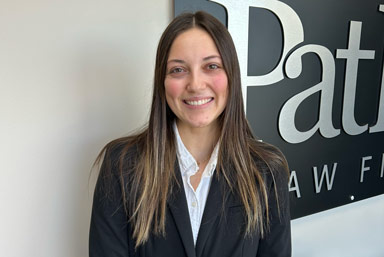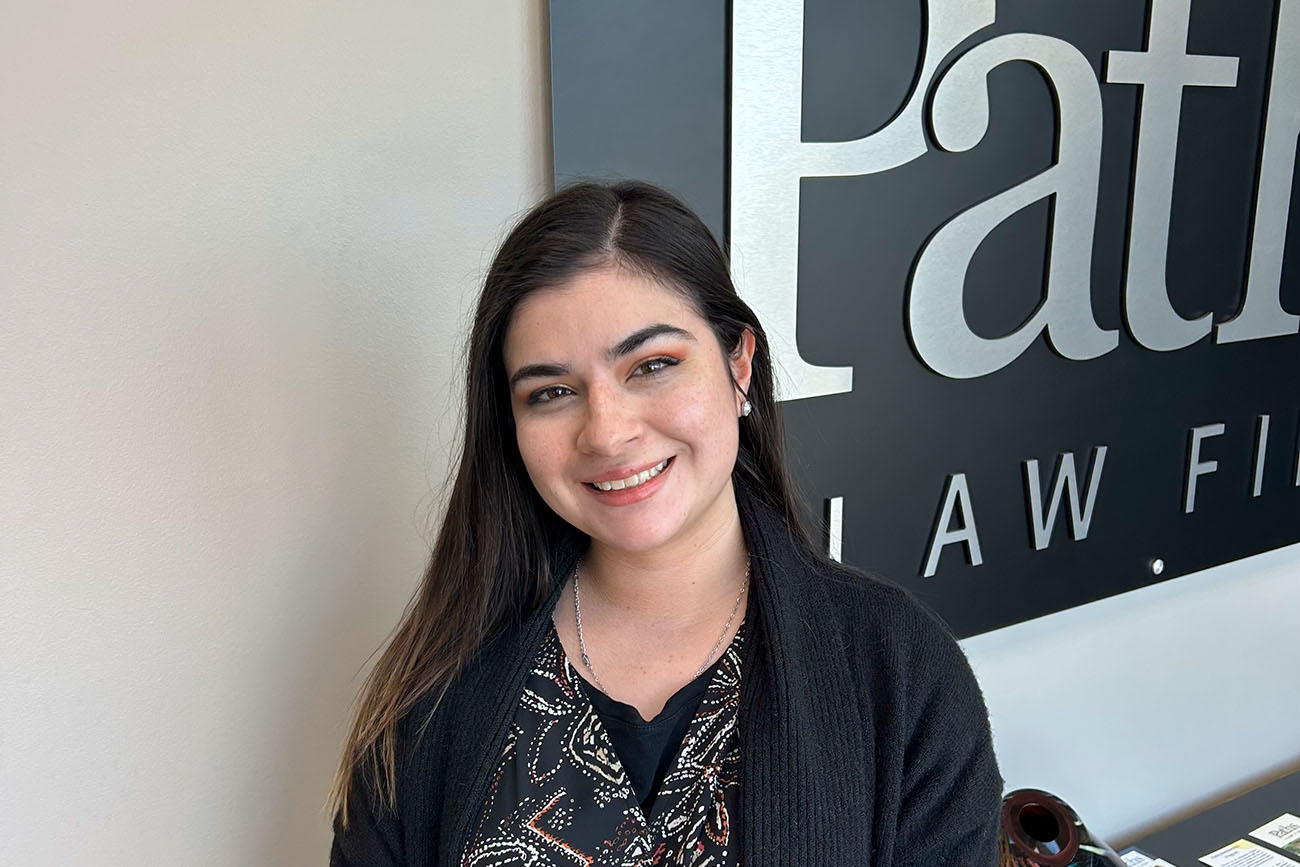
5 Common Mistakes Seniors Make—and How to Avoid Them
As we age, planning for the future becomes more important
Appointments Available: Monday-Friday 8:00am-5:00pm, Saturday By Appointment Only
Appointments Available: Monday-Friday 8:00am-5:00pm, Saturday By Appointment Only

As we age, planning for the future becomes more important

The medicaid estate recovery program (MERP) allows Missouri Medicaid to

Understanding Miller Trusts for Medicaid Planning in Missouri A Miller

Hiring an elder law attorney is essential for families navigating

Elder financial abuse lawyers are becoming more and more necessary

Why the Medicaid 5 Year Look-Back Period Matters Understanding how


MAIN OFFICE
OVERLAND PARK
NORTH KANSAS CITY
816-524-7999
2029 Burlington St
North Kansas City, MO 64116
By appointment only
888-512-9247 (fax)
APPOINTMENTS
Monday – Friday
8:00am – 5:00pm
Saturdays
Appointment Only
RESOURCES
DISCLAIMER
The choice of a lawyer is an important decision and should not be based solely upon advertisements. The use of this website does not create an attorney-client relationship. Please contact Paths Law Firm directly.
We improve our services and advertising by using Microsoft Clarity. By using our site, you agree that we and Microsoft can collect and use this data. Our privacy statement has more details.








Janeece Dent-Bennett was born in Lexington, Missouri, in 1960 and graduated from Lexington High School in 1979. She graduated with a Bachelor of Science in Business Administration with a major in Accounting from University of Central Missouri in Warrensburg, MO in 1982.
In 1985, Janeece graduated with distinction from the University of Missouri-Kansas City School of Law.
Upon graduation from law school, Janeece joined the former Shughart Thomson & Kilroy, P.C. law firm (now Polsinelli) in Kansas City, Missouri, with a primary practice in corporate and business law.
She started her own law practice in 1989 and has since practiced law in Lee’s Summit, Missouri, serving clients throughout the state of Missouri with a primary emphasis in Wills, Trusts, Estate Planning, Probate, and Business Transactions.
Janeece is married and has 3 children. Jillian Dent is an attorney in Kansas City, Missouri. Nathan Dent is a Certified Public Accountant in Denver, Colorado. Andrew Bennett is an Electrical Engineer in North Kansas City, Missouri. Her husband Mark Bennett is an IT specialist contractor for the USDA.
Recently, Janeece closed her former solo law practice of 36 years and joined Paths Law Firm in Lee’s Summit, MO as Of Counsel.

With a strong background in customer service and a passion for helping others, Reese brings dedication and a positive attitude to her role as a Legal Assistant at Paths Law Firm. She supports the team by managing client correspondence, organizing policies, and stepping in wherever needed to ensure clients receive the highest level of care. Known for her strong work ethic and adaptability, Reese is always ready to tackle new challenges and contribute to the firm’s mission.
Reese is currently enrolled in the Honors Program at the University of Missouri–Kansas City, where she continues to pursue academic excellence. Outside of work and school, she enjoys spending time outdoors and cherishing meaningful moments with her family and friends. Her enthusiasm, reliability, and drive make her a valuable part of the Paths Law Firm team.






Jeane Fracassa – a dedicated and accomplished professional who retired with an impressive 38-year service record from the Kansas City Missouri Police Department. Throughout her illustrious career, Jeane served as a Civian Supervisor in the Communications Unit, where she played a pivotal role in ensuring efficient and effective communication within the department.
Even in retirement, Jeane’s commitment to community service remains unwavering. Currently, she serves in various capacities within Community Relations at Paths Law Firm. Actively engaged in the Lee’s Summit and Overland Park communities, she proudly represents the law firm.
In all aspects of her life, Jeane Fracassa exemplifies the values of community, compassion, and family. Her commitment to making a difference and her love for exploration make her a remarkable individual, whose presence brightens the lives of those she encounters. Whether at work, with family, or during her travels, Jeane’s genuine care for others and her zest for life make her a truly remarkable and inspiring person.

Laura is the Law Firm’s marketing assistant, supporting all marketing tasks, including managing calendars, researching upcoming events, updating marketing software and spreadsheets, and partnering with organizations to maintain relationships that benefit Paths Law Firm’s clients. Laura is also the law firm’s professional photographer as she provides the professional photographs for the headshots, organizations, events, and networking.
Laura has over 10 years of experience as a professional photographer. She is also Adobe and Microsoft Certified. She graduated from Columbia College, Columbia, Missouri with her Bachelor of Arts degree, Magna Cum Laude, in Behavioral Psychology (minors in Social Work and Criminal Justice), and her Photographic Craftsman degree from Professional Photographers of America. She is certified as a Qualified Mental Health Professional, Certified Gentle Teacher, Medicaid Billing Certified, Crisis Intervention Counselor, and a Missouri Notary.
Laura has been married more than 26 years and has a daughter and a son. She has four brothers, a niece, and a nephew. Her four spoiled pets that love her attention. A lot of Laura’s off time is spent taking photos and she is an internationally published photographer. Laura owns a studio on the historic Independence Square.

Holly is our newest member of the administrative team. She is hardworking, has proven organizational skills and excellent communication skills. Holly has transitioned to the Estate Planning field from healthcare administration where she gained valuable knowledge that has contributed to her success here at Paths.
Holly enjoys spending time with loved ones, cheering for the Chiefs, and relaxing on the beach.

Tressa has the important role of being a client’s initial point of contact as the law firm’s receptionist for all locations. She also welcomes, assists, and cares for clients at the Lee’s Summit office. Additionally, she provides support in an administrative capacity for the attorneys, staff, and clients. When you meet Tressa, the first quality many note is her readiness to be of assistance.
Tressa is a graduate of Park Hill High School with extensive administrative experience and executive level management. Tressa brings a stability and comfort to the law firm experience having worked in a variety of industries and having lived in six different major metropolitan cities.
Tressa has a daughter, two sons, and one grandchild. In her free time, she enjoys her family and friends, loves being outdoors, gardening, bike riding and bird watching. Indoor hobbies include scrapbooking, painting cookies, and cheering on Chiefs football. She is a Kansas City native but enjoys traveling but is always happy to be back in her hometown.

Kathleen Overton is an attorney and owner at Paths Law Firm. She has more than 17 years of experience advocating for those with special needs and navigating the state and federal agencies formed to help the disabled and elderly. At Paths Law Firm, Kathleen’s practice focuses on helping the elderly qualify for nursing home Medicaid, creating estate plans to protect beneficiaries, as well as a lot of time planning and forming businesses. Kathleen also enjoys helping clients form non-profit organizations and obtain 501(c)(3) tax exempt status.
After attending law school at the University of Oklahoma, Kathleen began representing clients before the Social Security Administration. Eventually her practice switched to federal court appeals and Kathleen spent years representing clients before the Eastern and Western District of Missouri, the District of Kansas, and the Eighth Circuit Court of Appeals. Kathleen has since focused her practice on estate planning and elder law after watching clients struggle to find ways to financially care for loved ones with special needs or aging parents.
Kathleen lives in the Northland with her husband and four children. She spends her free time attending soccer matches and ballet performances with her children and starting endless home improvement projects with her husband.


Sydney is the law firm’s internal accountant and one of their experienced paralegals having been with Paths Law Firm since 2017. She is a primary point of contact for estate planning and business planning.
Sydney graduated with honors from the University of Missouri Kansas City in 2022 with her Bachelor of Science Degree in Accounting. She is a Bloch Launchpad, Phi Theta Kappa, and National Honor Society alumni.
In her free time, Sydney enjoys spending time with her husband, reading, baking and going on long walks.

Christy has three years of experience in elder law working for seniors and their families. She is currently the Senior Administrative Assistant and organizes the day to day functions of the office and makes sure everything runs smoothly. When asked why she loved what she does, Christy said at Paths Law Firm, she gets the opportunity to help clients in more ways than one. Her favorite parts of the job are getting to know the clients and helping them get their questions answered.
Christy’s experience in the finance industry has been extremely beneficial to her role as the Senior Administrative Assistant. Christy has a special place in her heart for the elderly and attributes this to the relationship she had with her grandparents.
Christy was raised in Ogden, Utah and moved to Independence, MO, when she was ten years old. She has been with her high school sweetheart for 25 years and they have two beautiful children together. Her daughter works in the medical industry, and her son currently attends High School and plays Baseball. When Christy is not working, she enjoys crafting and spending time with her family and friends.
Christy’s experience in the finance industry has been extremely beneficial to her role as Benefits Coordinator. There have been many influences that went into her decision to select the field of Elder Law. Christy has a special place in her heart for the elderly and attributes this to her relationship with her grandparents.
When asked why she loves what she does, Christy said that at Paths Elder law, she gets the opportunity to help clients in more ways than one. Her favorite part of her job is getting clients approved for Medicaid or VA benefits as it is a huge relief for them and their loved ones.
Christy was raised in Ogden, Utah, and moved to Independence, MO, when she was ten years old. She has two children that keep her busy and fill her life with joy! Christy’s daughter cheers for Avila University, and her son plays competitive baseball for the Bucks and races BMX locally for the Motorcycle Closeout Team.
When Christy is not working, she enjoys crafting and making homemade gifts for her loved ones and raising her kids to be healthy, happy, and positive humans.
Practice Areas
Professionalc Memberships and Affiliations

René is the Financial Manager at Paths Law Firm overseeing all aspects of revenue, expenses, and financial planning. She is also responsible for general office management, including assisting in many of the administrative matters that periodically arise.
René earned her Bachelor of Science in Hotel and Restaurant Management from Central Missouri State University in Warrensburg, Missouri and soon thereafter worked her way through management at The American Restaurant where she worked almost 17 years before relocating to the country of China.
In her spare time, René is currently quite active managing multiple generations of her family, including parents and grandkids. René has had great impact on the lives of many women teaching discipling and teaching and abundance of Bible Studies. Her former career in management and event planning trained her well to juggle all the activity.

Hilary plays a vital role in managing the Marketing Department at Paths Law Firm. She is excellent at bringing new ideas and sharing valuable resources with the law firm and our community. Hilary has been with the law firm since the beginning, working in nearly every role which is invaluable in her marketing endeavors as she brings a unique set of skills into the Marketing Department.
Hilary is nearly complete in her Bachelor’s of Arts Degree in Marketing at Park University. She has earned the honor of being listed in National Honors Society, Phi Theta Kappa, and the Dean’s List. Hilary is always looking for new and innovative ways to share the law firm’s message.

Jennifer is the Sr. Paralegal and Operations Manager at Paths Law Firm. She oversees the firm’s probate department as well developing, implementing, and managing all the firm’s administrative processes having been with the law firm almost from the beginning. She enjoys client contact as well as behind-the-scenes operations.
Jennifer began her legal career in 1990 as a legal secretary. She has worked in small and medium sized firms, as well as court operations. She has her Paralegal Certificate from Boston University, Law Office Management Certificate from University of Central Missouri, and she is a Master Financial Coach.
Jennifer has two daughters, twin sons, and twin grandsons. She spends as much time as she can with them. She enjoys reading, listening to podcasts, and tending her yard.

When asked what he wants to do, his reply was “I just want to sit at the kitchen table and work directly with people.” Rusty enjoys working with clients providing experienced advocacy and supporting them through their unfamiliar and overwhelming situations. Due to all the challenges faced by seniors, it is essential to work with an experienced elder law attorney who has expertise in the law, issues, and concerns affecting seniors and their families.
Rusty brings more than 30 years legal experience and expertise working for seniors and their families as an elder law attorney in Kansas City and surrounding. Prior to law school, Rusty was an accountant and his first couple years practicing law was as a tax attorney. This provides invaluable experience in his current practice of law. Rusty’s focus is helping protect seniors’ assets from taxes and long-term care costs, benefit qualification, and navigating more complex family scenarios in their estate planning.
Rusty has personally experienced the loss every parent fears, caring for a spouse suffering with cancer and the treatment, and working with aging parents through all stages of their lives. He intimately understands the challenges faced by individuals and their caretakers when capacity or health declines, how to prepare for it, and the legal matters while in the midst of it. He may not be able to eliminate his client’s grief, but he strives to provide clients with peace of mind.
In 2010, Rusty’s faith and love led him and part of his family to China as Christian missionaries. He and his wife, went permanently, but ended up dedicating 3 years to that ministry. They returned to Missouri to help with grandchildren after a family tragedy and later began anew with Paths Elder Law. The goal is providing compassionate care through legal advocacy.
Rusty has multiple degrees and advanced study spanning his Bachelor’s of Arts in Business Administration – Accounting at Rockhurst College (now Rockhurst University), Masters of Arts in Accounting and in Intercultural Studies, as well as his Juris Doctorate from the University of Missouri at Kansas City School of Law.
When Rusty is not practicing law, he enjoys spending time with his family, grandchildren, and excessive eating at local restaurants.
Practice Areas
BSBA and Master’s in Accounting, Master’s in Inter-Cultural Studies, and Doctorate in Juris Prudence
Admissions to Practice
Professional Memberships and Affiliations